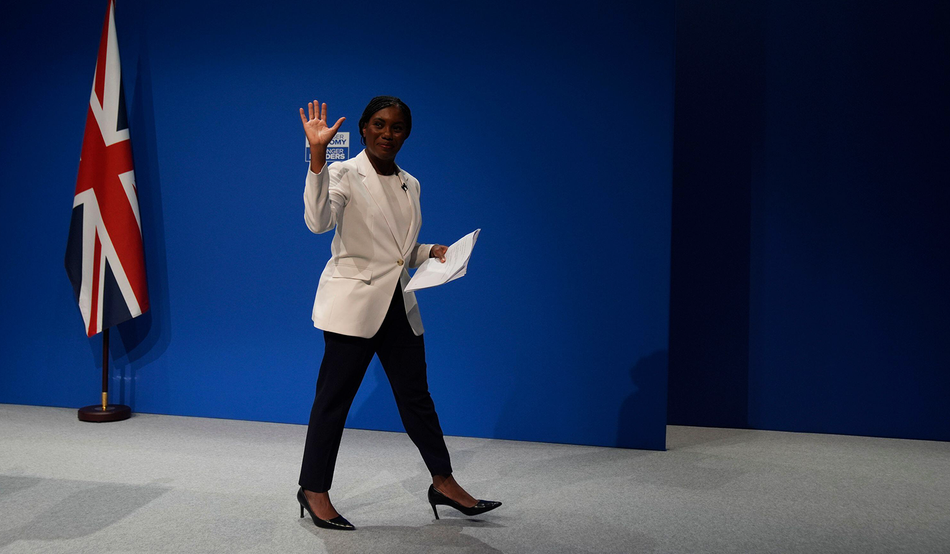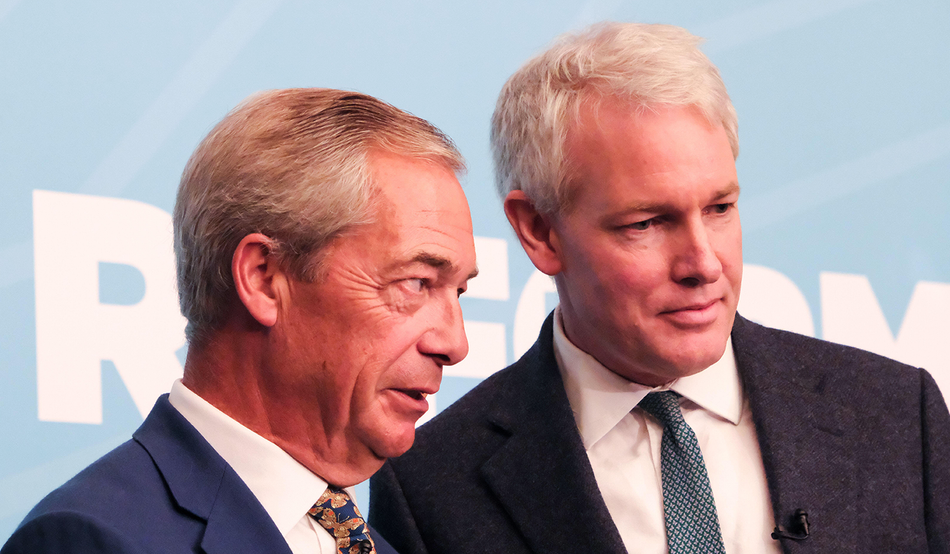“I want Rupert Lowe to be prime minister, and Ben Habib as his deputy.”
No, those aren’t the words of a disgruntled Reform activist. They came from an elderly Tory I queued beside for entry to the Conservative Friends of Israel reception at this year’s party conference in Manchester. They are joking, was my initial thought. They couldn’t actually want these two former Reform politicians to join the Tories. But as the queue shuffled along, I realised they weren’t and that their wish contained an undeniable truth: the Conservative grassroots are looking for change.
The party is certainly changing, and moving, but backwards in time. Step into the exhibition hall of Manchester Central and you’d think you’d wandered into a shrine rather than a party conference. Three of Margaret Thatcher’s original outfits, one in her iconic royal blue, were lovingly displayed in glass cases. This year marks the 50th anniversary of Thatcher becoming party leader, and the centenary of her birth. But what might once have been a celebration of history felt more like someone reminiscing over their childhood because they’re incapable of dealing with adult problems.
That nostalgic mood set the tone for the conference. Here was a party gazing fondly at its reflection while the world outside keeps shifting. The Tories seem to reach for the past the way some people reach for comfort food. Thatcher’s memory has become the emotional scaffolding, a way of propping the Conservative party up when conviction in its place in politics, in its policies, in its future, starts to wobble.
This year’s conference is Kemi Badenoch’s first as leader and it feels like her audition for survival. Imagine your P45 is about to be printed, and you make a last-ditch effort to convince your employer with a raft of ideas. The May local elections hang over Badenoch. Everyone knows this could be her last disco before the lights go out.
“This conference is a bit like Keir Starmer’s conference. His speech at Labour was not addressed at the country at all, in my view,” Andrew Pierce, aka “Tory Boy Pierce”, who has been coming to Conservative party conferences since the 1980s, tells me. “It was about the conference hall, the party membership, Labour MPs because his leadership is in real jeopardy. Hers is in even more jeopardy!” Take solace, prime minister, because there is someone who is in a far worse position than you.
Even as a sizeable proportion of party members rally around Badenoch, there’s a quiet awareness that this might be a prelude to something else. The laughter is genuine, but it has an edge to it; the clinking of glasses sounds more like coping than celebration, both buoyant and brittle. There’s talk of revival, laughter, dancing—and the faint scent of denial. “Out-reforming Reform” is the order of the day, with Katie Lam, the shadow home office minister, calling for a review of welfare rights for EU nationals with settled status. It’s a move that risks echoing the Windrush scandal. Badenoch, meanwhile, has focused on the new right-wing obsession with ditching the European Convention on Human Rights (ECHR), as if that could actually solve any of the country’s problems.
In the bar at the Midland Hotel the mood is buzzy enough, but everyone seems to notice that there aren’t as many people around as there were last year, before Badenoch was elected leader. Could it be something to do with the party losing two-thirds of its MPs at the last general election? The bar, which last year was a chaotic hub of gossip, now feels subdued. Conversations circle politely. The wine, beer and prosecco flow, but the optimism doesn’t.
There are still plenty of Tory party members who believe in Badenoch, or at least want to. They call her relentless, decisive. They say things like “she is improving”. But the faith feels cautious, almost superstitious. For every member who supports her, there’s another quietly checking their phone for polling updates. Others simply want her to stay because changing leaders didn’t exactly help the party over the last 14 years.
Meanwhile, one name is on almost everyone’s lips: Robert Jenrick. The new Sky News/YouGov polling showing that party members now want him to lead has given his appearances the air of a coronation rehearsal. At the conference he gives unmistakable “leader in waiting” energy, the kind that makes even sceptics linger at the back of a packed room just to see what all the fuss is about.
Jenrick’s vision for the party is not a reflection of party consensus, however. His fixation on white Britishness, integration and Birmingham drew criticism from party colleague Andy Street, the former mayor of the West Midlands. It could be an early sign of the battles yet to come for the Conservatives’ soul.
But today’s Conservatives are nostalgic for an era when confidence came naturally, when being a Tory meant being on the winning side of history. Now, they dance to old tunes and call it renewal. You can’t help but wonder whether you are witnessing the moment when the music finally stops.












